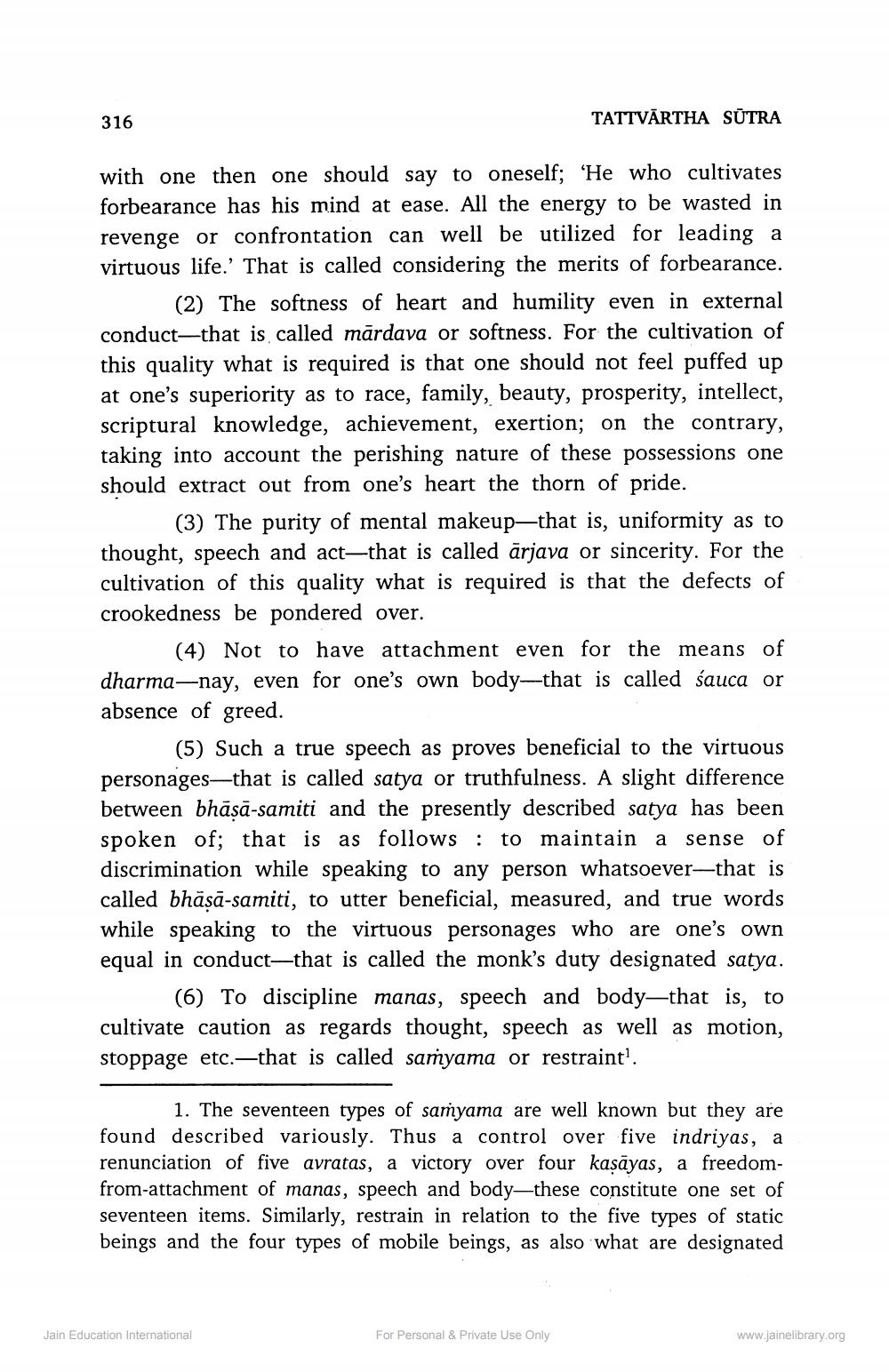________________
316
TATTVĀRTHA SŪTRA
with one then one should say to oneself; 'He who cultivates forbearance has his mind at ease. All the energy to be wasted in revenge or confrontation can well be utilized for leading a virtuous life. That is called considering the merits of forbearance.
(2) The softness of heart and humility even in external conduct—that is called mārdava or softness. For the cultivation of this quality what is required is that one should not feel puffed up at one's superiority as to race, family, beauty, prosperity, intellect, scriptural knowledge, achievement, exertion; on the contrary, taking into account the perishing nature of these possessions one should extract out from one's heart the thorn of pride.
(3) The purity of mental makeup—that is, uniformity as to thought, speech and act—that is called ārjava or sincerity. For the cultivation of this quality what is required is that the defects of crookedness be pondered over.
(4) Not to have attachment even for the means of dharma-nay, even for one's own body--that is called sauca or absence of greed.
(5) Such a true speech as proves beneficial to the virtuous personages—that is called satya or truthfulness. A slight difference between bhāṣā-samiti and the presently described satya has been spoken of; that is as follows: to maintain a sense of discrimination while speaking to any person whatsoever-that is called bhāṣā-samiti, to utter beneficial, measured, and true words while speaking to the virtuous personages who are one's own equal in conduct—that is called the monk's duty designated satya.
(6) To discipline manas, speech and body—that is, to cultivate caution as regards thought, speech as well as motion, stoppage etc.—that is called samyama or restraint.
1. The seventeen types of samyama are well known but they are found described variously. Thus a control over five indriyas, a renunciation of five avratas, a victory over four kasāyas, a freedomfrom-attachment of manas, speech and body—these constitute one set of seventeen items. Similarly, restrain in relation to the five types of static beings and the four types of mobile beings, as also what are designated
Jain Education International
For Personal & Private Use Only
www.jainelibrary.org




